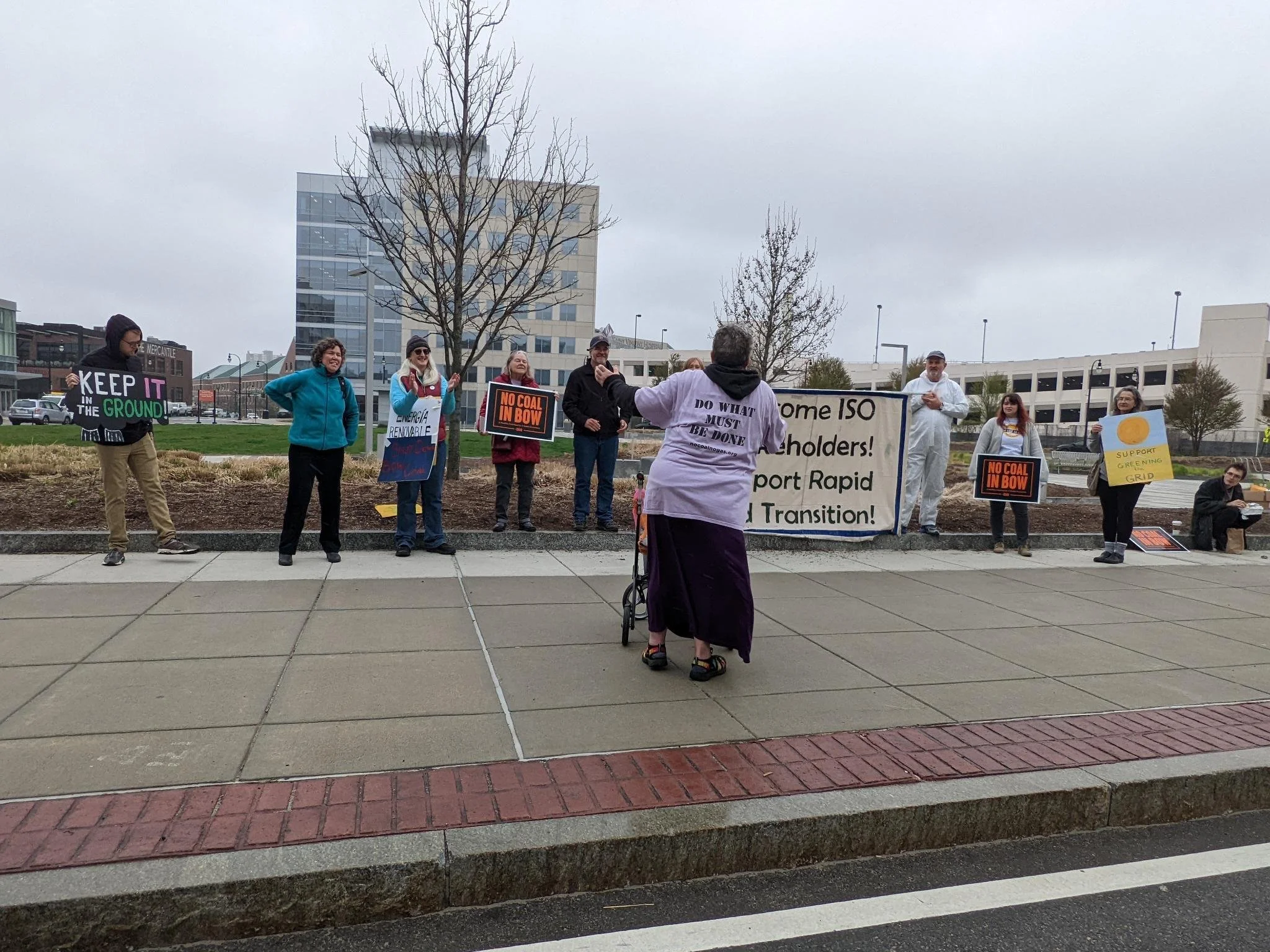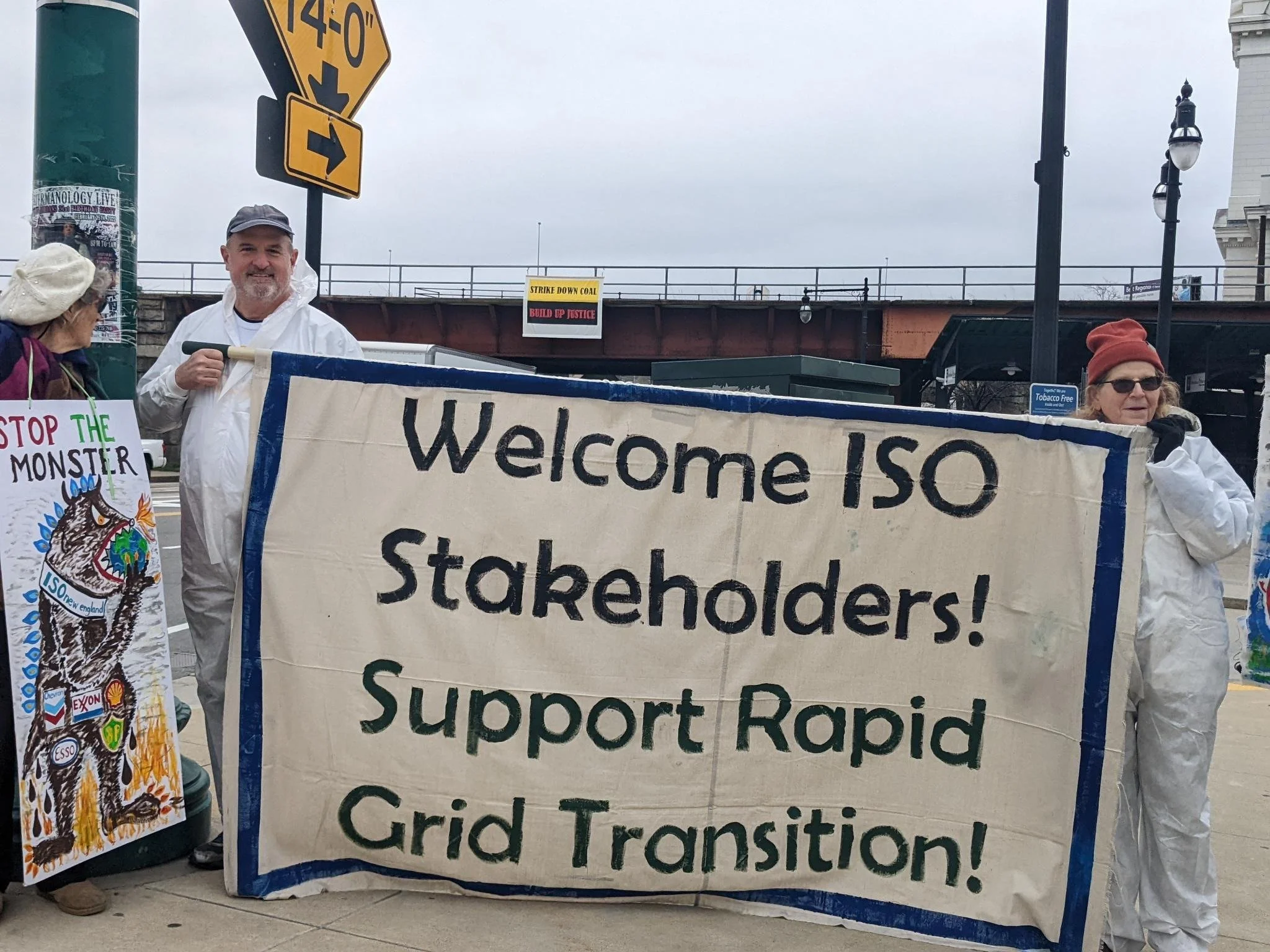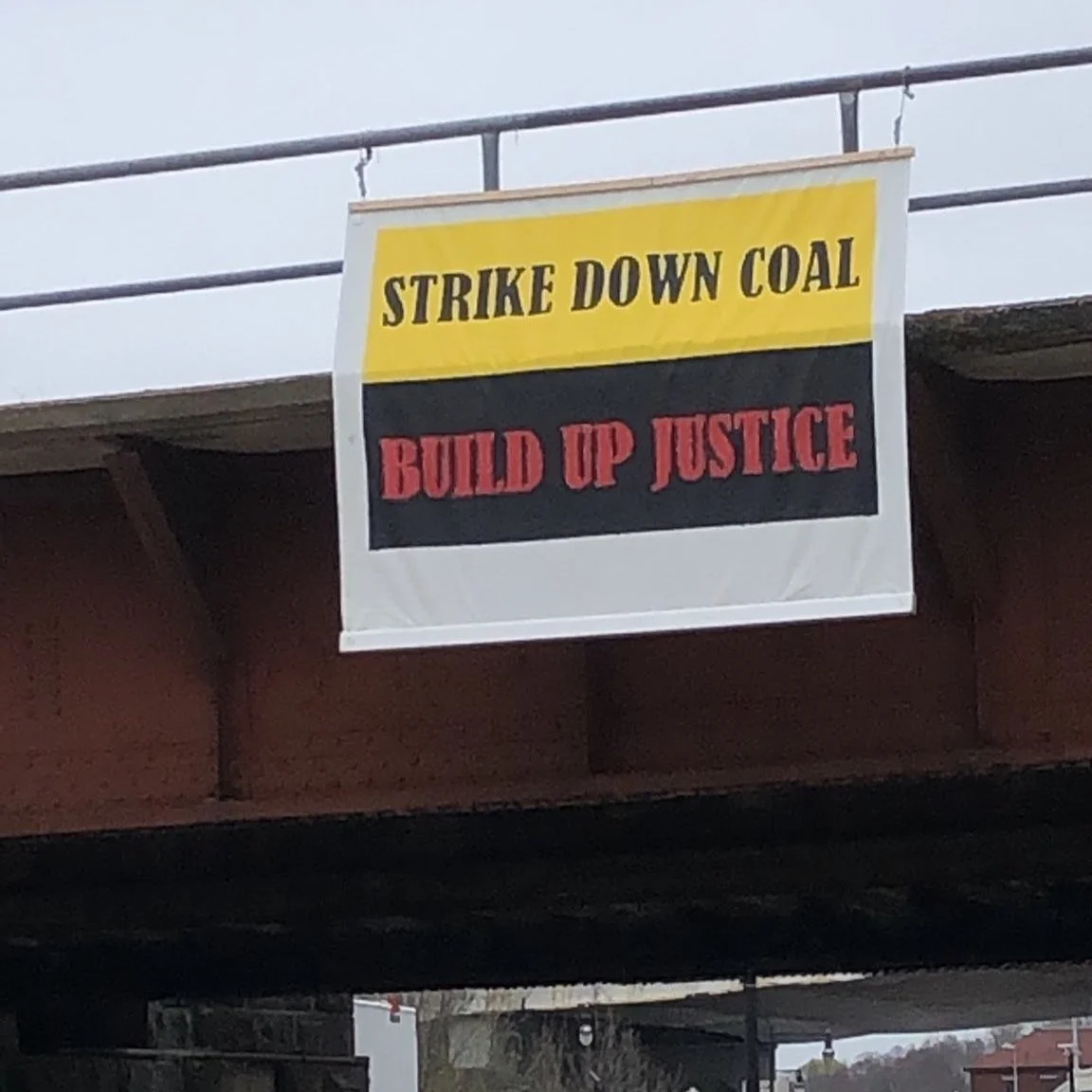Activists gathered outside of a regional electrical grid stakeholder meeting to advocate for transparent policies, an end to coal, and a swift transition to renewable energy.
Worcester, MA—No Coal No Gas activists rallied outside as New England’s electrical grid operator (ISO-NE) and stakeholder group, NEPOOL (New England Power Pool), met to discuss the results of their Pathways Study. This 2022 study evaluates policy and regulatory
approaches that will support the stated greenhouse gas emissions reduction targets of the New England states in the electric power sector. The study also set baseline assumptions about the fuel mix for the region — including the assumption that coal will be off the grid by June 2025.
Shortly after the Pathways Study was released, this foundational assumption was undercut by the results of ISO-NE’s annual Forward Capacity Auction - a kind of ratepayer subsidy given to ensure future grid reliability and adequate electricity supply in the region. These subsidies fund power plants that are called upon to power up infrequently, at times of high peak demand. The 2022 auction results were released on February 28th, revealing that contrary to the assumptions of the Pathways study, ISO-NE awarded the last coal-fired power plant in the region (Merrimack Generating Station in Bow, NH) forward capacity payments for the annual commitment period which begins in June 2025.
“No one has time for excuses," said Aaron Jacobs, an activist from Rhode Island. "We are living through a climate catastrophe and ISO-NE and NEPOOL need to make a firm commitment to immediately decarbonize the region’s energy system. Moving towards more transparent and just grid regulation is a necessary step for our collective survival.”
While the activists gathered to urge ISO-NE to act on the study recommendations, a smaller group hung a banner off a nearby train bridge. The banner, which read “Strike Down Coal; Build Up Justice” was visible from the AC Marriott hotel, the site of the NEPOOL meeting.
“Even as our grid regulators and stakeholder organizations meet to discuss our energy future, Merrimack Station, New England’s last coal-fired power plant, is being resupplied by coal trains that pass over this track,” said Isaac Petersen, a No Coal No Gas organizer. “As members of No Coal No Gas, we have always been determined to make change ourselves when necessary. Last time the plant was resupplied, we blockaded coal trains six times, and our determination has only grown since then.”
Since its launch in 2019, the No Coal No Gas campaign has pushed for the closure of Merrimack Station in Bow, NH, which would render New England’s electric grid coal-free. The campaign has protested at the coal plant, taken nonviolent direct action, held a utility bill strike, driven public comments to the Federal Regulatory Energy Commission (FERC), and met with officials at ISO, NEPOOL, The New England States Committee on Electricity (NESCOE), and some of the state’s ratepayer advocates.
No Coal No Gas currently partners with grassroots groups including 350NH Action and Fix the Grid (convened by Community Action Works) to drive public comments to the Federal Energy Regulatory Commission. Current efforts include comments calling on FERC to cancel ISO New England’s latest forward capacity auction results (FCA 16) and to end a rule that limits renewable energy entry into the grid and by design gives priority to fossil fuel generators (MOPR).
NCNG’s Steven Botkin shares his experience as an invited observer of NEPOOL proceedings. Image credit: No Coal No Gas campaign
“This Pathways Study is an important potential turning point for our grid,” said Steven Botkin, an activist from western Massachusetts with the campaign’s ISO working group. “It’s far more conservative and less imaginative than the solutions we would like to see, but it does represent a significant opportunity for public engagement, transparency, and accountability to the needs of people across our region.”
On Tuesday, the organizers expressed their hope that public pressure would encourage grid decision makers to act. “It’s absurd that we are still running and resupplying coal-fired power plants, when every indication tells us that it’s way past time for a just transition,” said Leif Taranta, a Vermonter and coordinator of the campaign. “It’s time for ISO New England to honor the assumptions and conclusions of their own study and to make this shift happen. The people of New England are watching eagerly and ready to intervene to ensure that our grid leadership is doing what must be done.”




